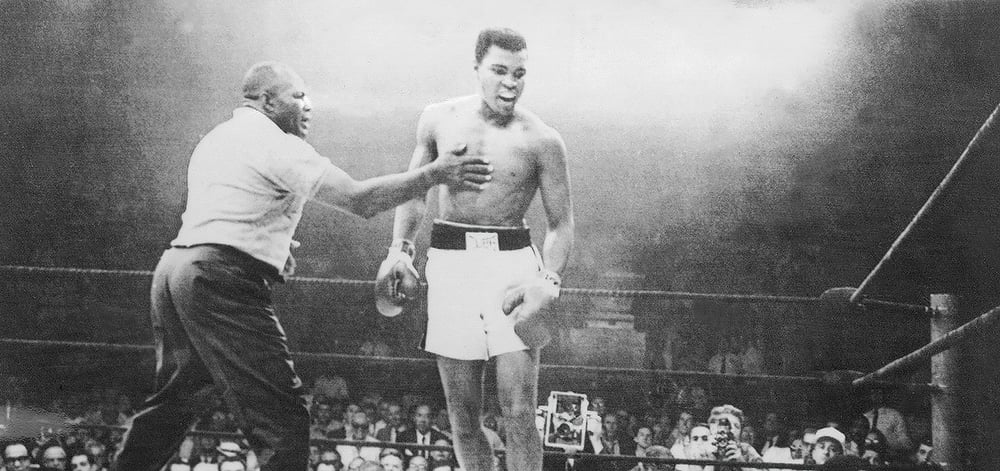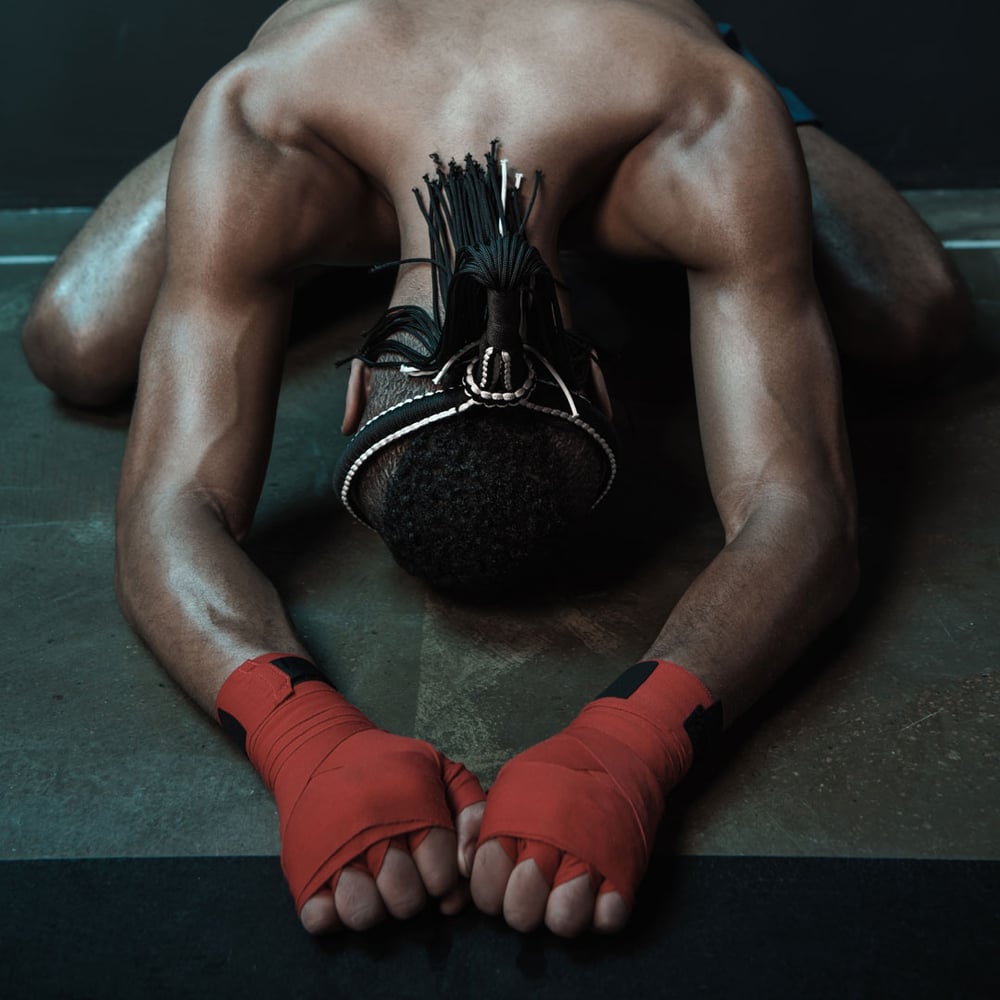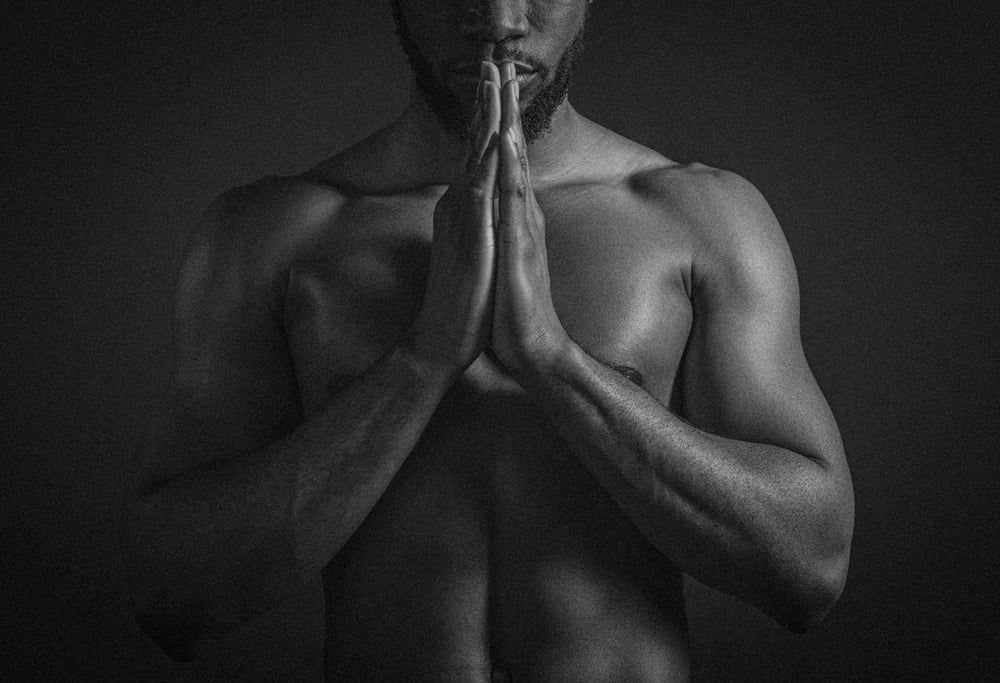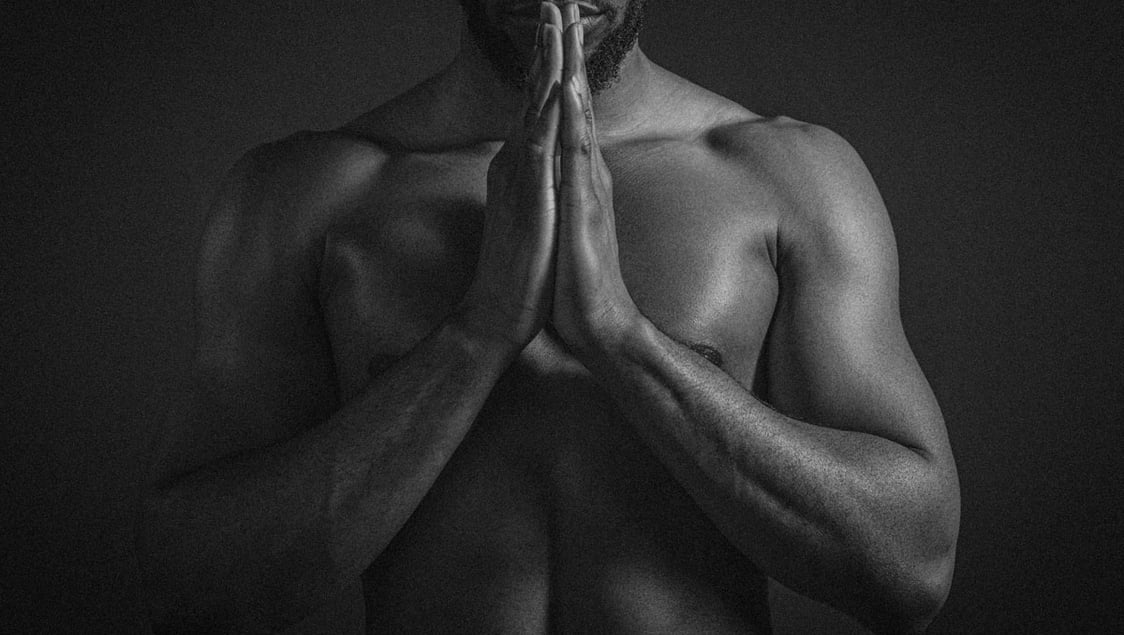
Issue 204
March 2024
In every field of high-achieving fighters, you’ll find competitors thanking spirituality for success. Ray Klerck investigates the real-world reasons why faith can make fighters fitter, healthier, and better and primed to win.
You’ve seen hundreds of post-fight interviews where a winning fighter goes on to thank God. It’s an extensive list. Jon Jones. Vitor Belfort. Brock Lesnar. Beneil Dariush. Khabib Nurmagomedov. Fighters and religion have always gone hand in glove, with the world’s most famous pugilist even changing his name to Mohammed Ali to reflect his new faith.

The notion of a higher power may sound a little odd to an atheist who may question if God really cares about the trivialities of who wins a fight, especially if they’re both believers in the same God. Questioning the validity of faith is missing the point because the act of belief gives fighters the focus to perform at the highest levels. There are things every fighter can learn from this, even if you’re not aspiring to enter the octagon. Here’s why belief in something greater than yourself can make you a better fighter and why we should celebrate all faiths.
THE TROUBLE WITH MEASURING FAITH
It is challenging to quantify the effects of spirituality on health and fitness. Most studies ask people to assess their religiosity via objective measures like how often they pray or attend religious services. These are the sort of things that people are famously bad at reporting. It’s also near impossible to ‘assign’ subjects to different groups to do controlled experiments. After all, you can’t tell someone to become an atheist to help their ground-and-pound game any more than you can convince them to start believing in God to help them throw more accurate knockout blows. Finally, in wide-scale studies, it’s tricky to account for the positive effects of being part of a religious community of good role models, social support, and social capital coupled (usually) with less smoking, drinking, and negative behaviors. Think of it like the ultimate fight team, but one that lives with you outside the gym. However, despite many studies on the beneficial effects of religion, few of them are unbiased enough to pay attention to. Still, there are many underlying elements they do address that can help you become a better fighter.

SPIRITUAL POWER
Despite the difficulties in taking clinical measurements, internal faith does create external changes. You don’t even need to be super devout because a religious association is powerful enough. A study in the Journal Of The National Medical Association found group weight-loss programs are more likely to be efficacious if the program met in a church and if they have less experience with weight loss. This notion is powerful because religion is a source of optimism for believers and non-believers, promoting a sense of togetherness and belonging. A tradition with clear ‘rules’ can also provide the comfort of explaining when things go wrong, even in terrible situations. Religion can offer a powerful sense of self-worth. God's love is seen as unconditional in many faiths, while ‘earthly’ sources of pride (including creating a banging KO highlight reel) are more fleeting. If all that makes you live a happier, more gratitude-filled life, it could make a massive difference to your health and fight performance.

FORGIVENESS AS A PED
Spirituality’s biggest hitter is a more tolerant mindset. Research at Michigan’s Hope College got people to imagine a situation in which they either forgave a wrongdoer or nursed a grudge. The researchers told them to either plot revenge or try to feel empathy with the offenders. Participants rated situations where they were less forgiving as more depressing. Forgiveness created greater feelings of control and lower physiological stress. Grudges seem to erode your health. Forgiveness enhances your health. One notable study found that forgiveness could make hills feel less steep and make people jump higher. Moreover, long-term grudges matches have seldom settled beef in the octagon. DC and Jones still hate each other. So do McGregor and Poirier and Nurmagomedov. Burying the hatchet isn’t easy, but believing in a higher power can get you to that mental space, and you’ll be a better athlete for it because your stress is lower. People with greater exposure to stress over their lifetimes had worse mental and physical health, which would have a knock-on effect on their overall exercise performance, as found in a paper in the Journal of Health Psychology. When people forgave themselves and others, that characteristic alone virtually eliminated the connection between stress, mental illness, and cortisol levels.
COPING WITH BIG FIGHT JITTERS
For fighters operating at the top levels, religion is a way of coping with anxiety so they can let go and focus on delivering a high-level fight game. By ditching anxiety, psychologists theorize, athletes enhance their ability to play or perform more ‘in the moment’ – though it isn’t always necessary to believe in a supreme being to get there. This unwavering resolve in the face of adversity does create world-beating fighters. Research in Frontier of Psychology found that the distinguishing feature between champion athletes and low achievers is the former’s determination to return to their sport stronger following an injury or failure. The latter were surprised by their failures and lost enthusiasm. The belief that a higher power is helping you get back to your best self is a huge mental boost that can carry you through the natural ebbs and flows almost all fighters must endure.
FINDING THE FLOW
Flow is the name given to the state where you’re fully immersed in an activity, feeling energized and enjoying the process. Zen Buddhism, which forms the roots of several Japanese martial arts, including judo, kendo, and aikido, has parallels with the flow state. This concept includes the idea of ‘control without controlling’ or being secure and relaxed at the same time. Jiri Prochazka adopts this Buddhist samurai approach, which channels the concept of flow and accredits his mindset to reading The Book of the Five Rings by the most famous sword master, Miyamoto Musashi.

“And thanks to this book, I have also been following the Bushido code,” Prochazka told ESPN. “Bushido philosophy, or the samurai ideology, deals with the honor of a man and the fact whether he is capable of honoring his word under any circumstances. To keep his mind still, whatever happens around him. Life finally started to make sense for me, and I started to follow a path that led me somewhere. It allows you to watch yourself grow.”
Steven Kotler, a journalist, states that extreme sports athletes like skiers and surfers are constantly chasing this heightened flow state. "Flow is an optimal state of consciousness when you feel and perform your best," he says. "It’s the moment of total absorption. Time speeds up or slows down like a freeze-frame effect. Mental and physical ability go through the roof, and the brain takes in more information per second, processing it more deeply." Mindfulness and meditation, says Kotler, can make it easier to enter the flow state, which demands total attention to the present moment. This isn’t just conjecture; research at Texas Tech University found that meditation significantly improves attention, memory, creativity, immune function, and healthy habits while drastically reducing stress. If you’re making fast decisions while fighting, you might have more in common with a Buddhist monk’s belief systems than you realize because this singular focus is the cornerstone of combat success.
FORWARD THINKING
Your religious beliefs have probably formed over decades with the influence of friends, family, and your community, which means they’re unlikely to change easily, even if you suddenly decide to become a pro-fighter. Regardless of whether you’re a believer in Christianity, Judaism, Islam, or Buddhism, the positive effects may or may not come from a higher power but from what you’ve already got deep inside of you. Being kinder, more empathetic, quicker to forgive, and less inclined to hold grudges will help every fighter, whether they’re religious or not. And, of course, the flip side is also true: no matter how fervently you trust in your belief system, filling yourself with hatred and bitterness toward people or things will only hurt you, both through your inability to focus and your elevated stress levels. Holding a grudge is like swallowing rat poison and expecting the rat to die. Act toward people like you’d want them to act towards you, and try your best. It doesn’t really matter what faith you follow: your life, health, physique, and performance will all be positively impacted, thanks to your belief.










